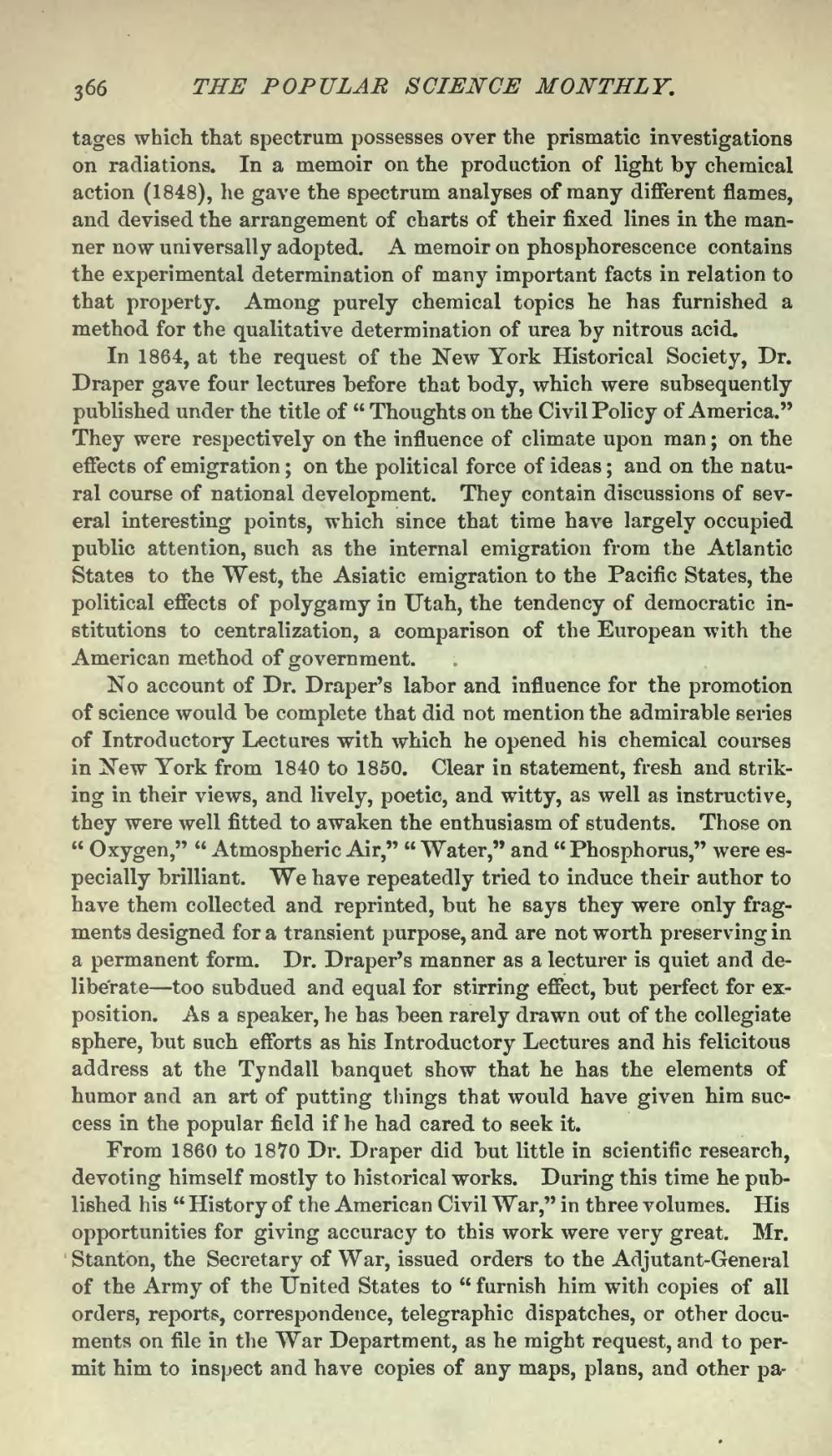tages which that spectrum possesses over the prismatic investigations on radiations. In a memoir on the production of light by chemical action (1848), he gave the spectrum analyses of many different flames, and devised the arrangement of charts of their fixed lines in the manner now universally adopted. A memoir on phosphorescence contains the experimental determination of many important facts in relation to that property. Among purely chemical topics he has furnished a method for the qualitative determination of urea by nitrous acid.
In 1864, at the request of the New York Historical Society, Dr. Draper gave four lectures before that body, which were subsequently published under the title of "Thoughts on the Civil Policy of America." They were respectively on the influence of climate upon man; on the effects of emigration; on the political force of ideas; and on the natural course of national development. They contain discussions of several interesting points, which since that time have largely occupied public attention, such as the internal emigration from the Atlantic States to the West, the Asiatic emigration to the Pacific States, the political effects of polygamy in Utah, the tendency of democratic institutions to centralization, a comparison of the European with the American method of government.
No account of Dr. Draper's labor and influence for the promotion of science would be complete that did not mention the admirable series of Introductory Lectures with which he opened his chemical courses in New York from 1840 to 1850. Clear in statement, fresh and striking in their views, and lively, poetic, and witty, as well as instructive, they were well fitted to awaken the enthusiasm of students. Those on "Oxygen," "Atmospheric Air," "Water," and "Phosphorus," were especially brilliant. We have repeatedly tried to induce their author to have them collected and reprinted, but he says they were only fragments designed for a transient purpose, and are not worth preserving in a permanent form. Dr. Draper's manner as a lecturer is quiet and deliberate—too subdued and equal for stirring effect, but perfect for exposition. As a speaker, he has been rarely drawn out of the collegiate sphere, but such efforts as his Introductory Lectures and his felicitous address at the Tyndall banquet show that he has the elements of humor and an art of putting things that would have given him success in the popular field if he had cared to seek it.
From 1860 to 1870 Dr. Draper did but little in scientific research, devoting himself mostly to historical works. During this time he published his "History of the American Civil War," in three volumes. His opportunities for giving accuracy to this work were very great. Mr. Stanton, the Secretary of War, issued orders to the Adjutant-General of the Army of the United States to "furnish him with copies of all orders, reports, correspondence, telegraphic dispatches, or other documents on file in the War Department, as he might request, and to permit him to inspect and have copies of any maps, plans, and other pa-

